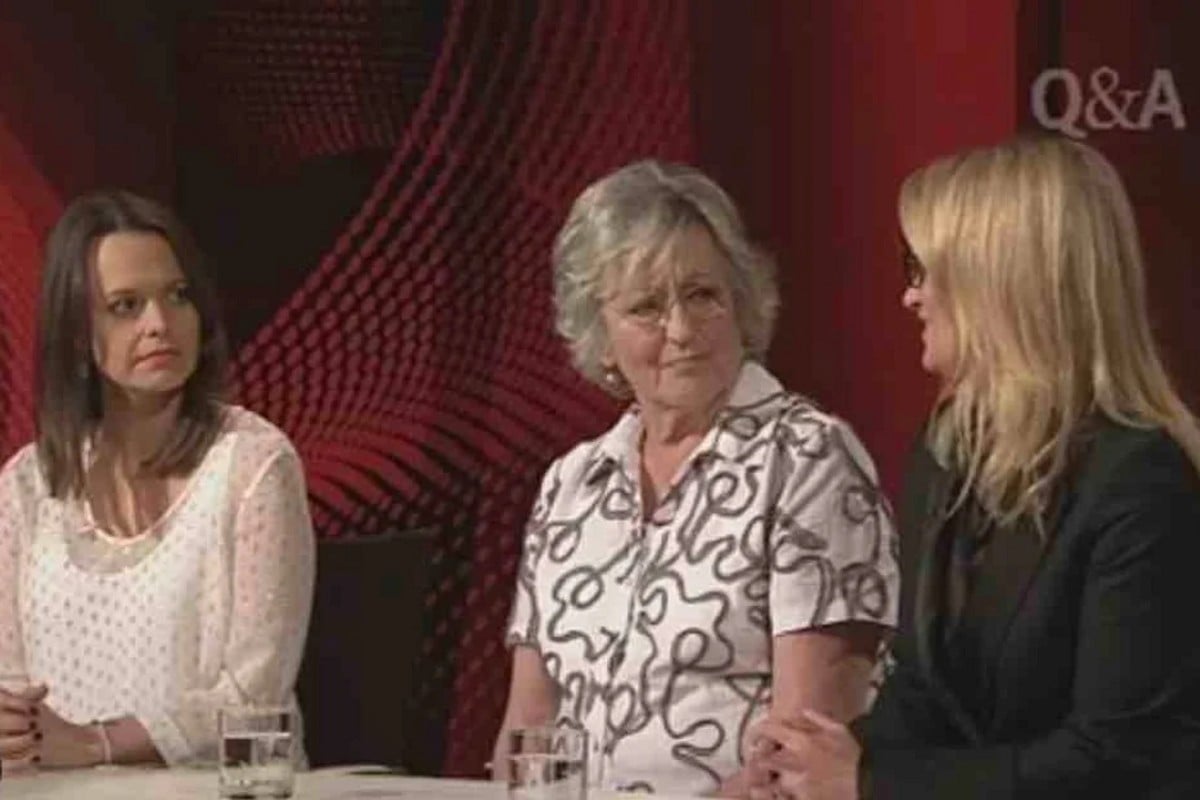
This article originally appeared on Mia Freedman's Babble, a newsletter delivering content on pop culture, modern life and being a Gen Xer in a Gen Z world. Sign up here.
Having once been the EP of a show that got axed during my blink-and-you'll-miss-it disastrous few months as a TV executive back in the early 2000s (RIP, The Catchup), I would never feel smug about a program getting cancelled.
And as a media company co-founder who employs lots of people and has to sometimes make hard decisions when something isn't pulling a large enough audience to be sustainable, I feel nothing but empathy for every single person affected by the end of The Project and Q&A. Media is hard. You can work hard and try hard and give everything, and it can still tank. But it's worth noting that these were two of the biggest, most successful and innovative shows on Australian television for years.
Watch: The Project finishes after 16 years. Post continues after video.
Both The Project and Q&A both started at the same time as Mamamia — around 2007 — and to say that things have changed a bit since is like saying Elon Musk is a bit loose. There was no social media back then, no Netflix, no streaming services.
No group texts or WhatsApp. Cancel culture was still nascent.
I was invited to be on Q&A for the first time to be on a special all-female panel for International Women's Day. I sat next to Germaine Greer.
In the first few minutes, this audience question was directed to me:
"Mia, you once said Germaine Greer was an embarrassment to feminism because she said Julia Gillard had a big bottom. Do you think — as you wrote at the time — that she's stayed too long at the party and she needs to go home?"
Things went downhill from there. Unexpectedly, Margaret Thatcher died while we were live on air and I had nothing to say other than Meryl Streep was amazing in the movie. And then I got cancelled for saying something on another topic that was twisted out of context and weaponised by people who would tune in just so they could tweet their outrage and mockery of everything the panellists said, in real time.
Friends, I did not enjoy myself. Still, I went back one more time a few years later because I am a goldfish. On that occasion, I sat next to Alan Jones. I didn't get cancelled that time but only because I tried to run down the clock by saying as little as possible and speaking exclusively in generalisations that are always popular on Q&A, such as "we should do more" and "we need to be better".
Who can argue with that? But also, what's the point? You don't get paid to be on Q&A, and it's a massive drain on your time and nerves and has the potential to blow up your reputation and decimate your livelihood, thanks to social media. Funny how they found it harder and harder to book guests.
My experiences on The Project were only slightly better. I recall checking my phone after one appearance and seeing the Tweet: "Mia Freedman is the load her mother should have swallowed", which remains one of the most creative insults a troll has ever hurled at me.
I never enjoyed being on the show, and it made me very insecure and needy. Being the '4th chair', as the guest co-host is called, is a weird and difficult gig. You have to say enough to add value in the hope you'll be asked back, but not enough to get cancelled, and you always have to defer to the main hosts because they are the main hosts.
I never could find that balance. Partly because of the format of the program — they pack so much into an hour and there are four hosts plus guests, scripted gags and pre-recorded bits, you have to be able to deliver a very tight punchline or comment.
And! You have to not interrupt anyone else and stay out of their way while still saying enough to make your presence felt. But lightly! Some people are really good at this. Jessie Stephens and Kate Langbroek are two who come to mind. It's a dance, and they do it with grace, wit and intelligence at speed.
I never did. I am not suited to the medium of live panel shows in the age of social media. My soundbites regularly land badly or are accidentally offensive. In the end, that's why they stopped inviting me to be on the show years ago and even though my ego stung for a minute, it was a relief.
That's why I love Mamamia Outloud, and I've really found my medium in podcasts. You have space to talk, and it's not live. People don't hate listen to podcasts. They're not looking for gotcha moments. It's harder to weaponise a word or a phrase by amplifying it in a way that deliberately ignores intention and context.
Listen to this subscriber-exclusive episode of Mamamia Out Loud where Jessie Stephens talks more about The Project's Cancellations. Subscribe to Mamamia to listen. Post continues after audio.
It's the one-two punch of social media plus podcasts that have made TV panel shows feel clunky — and too $$$$ to produce. Expensive shows need big audiences and the novelty of unscripted chat about the watercooler topics of the day is just not a novelty in 2025.
Read more from Mia Freedman:
Feature image: Supplied.






























































































